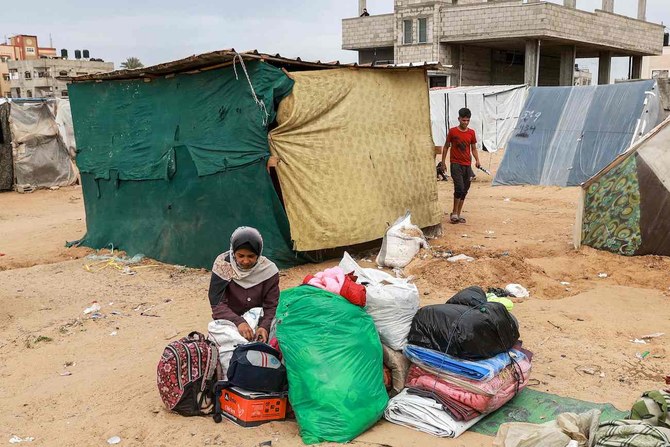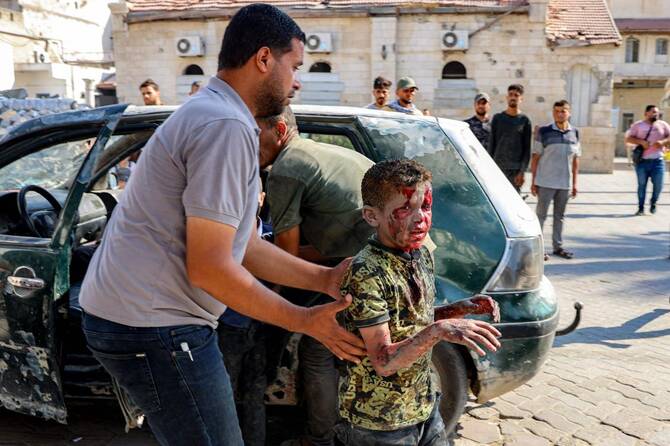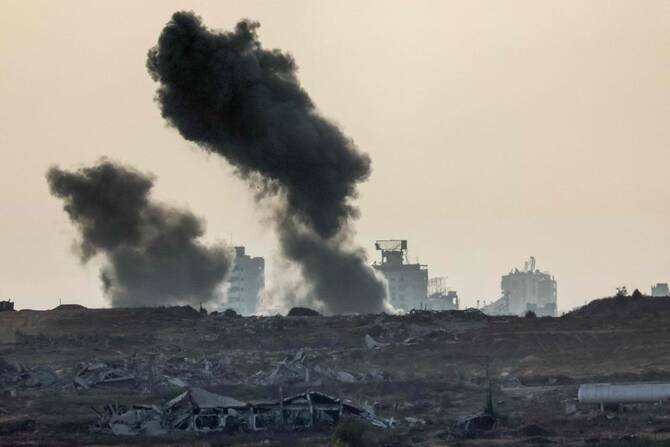NEW YORK CITY: South Africa on Tuesday made an urgent request for the International Court of Justice to consider whether the decision by Israeli authorities to expand their military operations into Rafah requires the court to use its powers to prevent further imminent breaches of the rights of Palestinians in Gaza.
Rafah, the last refuge for displaced Palestinians in the territory, has come under heavy fire from Israeli air strikes in recent days and at least 74 people reportedly have been killed.
Last week, Israeli Prime Minister Benjamin Netanyahu said he had ordered his troops to prepare for a ground offensive in the southern city.
UN human rights chief Volker Turk on Monday warned that any assault there would be “terrifying, given the prospect that an extremely high number of civilians, again mostly children and women, will likely be killed and injured.”
He added: “Israel must comply with the legally binding orders issued by the International Court of Justice, and with the full span of international humanitarian law. Those who defy international law have been put on notice: accountability must follow.
“The world must not allow this to happen. Those with influence must restrain rather than enable. There must be an immediate ceasefire. All remaining hostages must be released.”
More than half of the Gaza Strip’s population of 2.3 million people is now crammed into Rafah, a city near the border with Egypt that was home to only 250,000 people before the war began in October.
Many of the displaced live in makeshift shelters or tents in squalid conditions, with little or no access to safe drinking water or food.
ICJ rules stipulate that “the Court may at any time decide to examine … whether the circumstances of the case require the indication of provisional measures which ought to be taken or complied with by any or all of the parties.”
In its request to the court, submitted on Monday, the South African government said it was gravely concerned that the “unprecedented military” offensive in Rafah has already caused and will result “in further large-scale killing, harm and destruction.”
It added: “This would be in serious and irreparable breach both of the Genocide Convention and of the court’s order of Jan. 26, 2024.”
In its ruling last month, the ICJ ordered six provisional measures be taken, including obligations on Israeli authorities to refrain from actions contrary to the the Genocide Convention, to prevent and punish the direct and public incitement to genocide, and to take immediate action to ensure the flow of humanitarian assistance to civilians in Gaza.






















